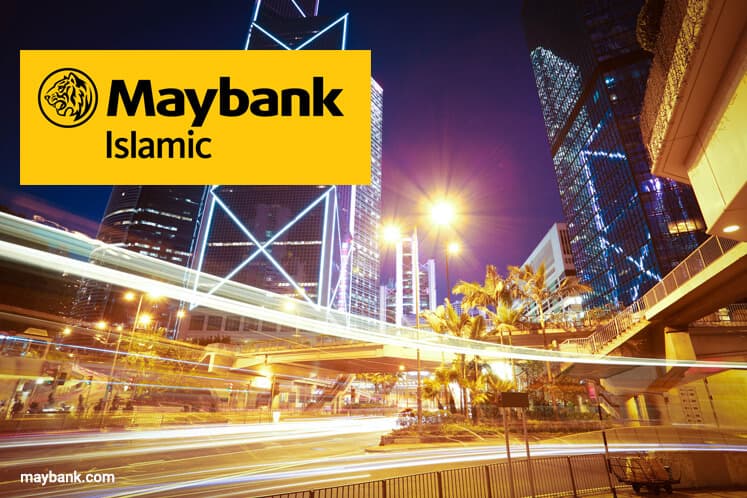
KUALA LUMPUR (June 6): Maybank Islamic Bhd (MIB), the largest Islamic bank by asset in ASEAN, wants to be the bridge for the Islamic banking sector between the Gulf Cooperation Council (GCC) and the region after its Dubai branch starts its operation by June this year.
Chief executive officer Datuk Mohamed Rafique Merican expressed confidence that the company would be able to play the role in facilitating the trade, as well as flow of funds for financial activities between the two regions, given MIB's strong footprints in Islamic finance, particularly in Malaysia, Indonesia and Singapore.
"For instance, Malaysia purchases oil and gas or other products from GCC and vice versa.
"With that, we can increase the trade flows not only between the two countries, but also between the regions," he told Bernama recently.
Last year, MIB announced that it might receive regulatory approvals to set up its Dubai branch in the first half of this year.
Being the largest Islamic bank in Malaysia (accounting for 30 per cent market share) and one of the five largest Islamic banks globally, MIB, a wholly-owned, full-fledged licensed Islamic bank of Malayan Banking Bhd (Maybank), has about RM225 billion worth of assets as at Dec 31, 2018 (FY18).
Its total gross financing for FY18 advanced 8.1 per cent year-on-year to RM176.8 billion, and its Islamic financing contributed 58.7 per cent to the group's total loans and financing.
Commenting on the country's Islamic financing growth outlook, Mohamed Rafique expected the growth rate to remain flat at 11 per cent for 2019, similar to that of 2018, owing to Malaysia's development level that stood “somewhere in the middle between Singapore and Indonesia”.
"For a developed nation like Singapore, where there is no huge demand for new infrastructure or public transport, the growth rate (usually) would be slower, or grow in tandem with the country's GDP (gross domestic product).
"Whereas in countries like Indonesia, where there is still much more to be done, the Islamic financing might grow by 1.5 times or a multiple more than that of the GDP growth, as the country still needs to invest in its infrastructure or housing projects," he said.
Besides, he said the moderate growth of the country's GDP, forecast at between 4.3 to 4.8 per cent this year, is also anticipated to lead to the flattish performance of Islamic financing expansion this year.
Mohamed Rafique, however, pointed out that the projected Islamic financing growth of 11 per cent was still higher than the conventional loans growth, which stood at about three to four per cent last year.
On sukuk's prospects, of which Malaysia took the top spot in global sukuk issuance in the first quarter of 2019, he expected the issuances to remain flat this year.
This is in line with most of the global ratings agencies' forecast amid the global economic uncertainty, as the challenging environment would lead to rising cost of funding for sukuk issuances.
However, he said MIB would continue to look for opportunities to arrange sukuk, be it in the country or in ASEAN, moving forward.
"For this year, I think sukuk issuance by the government would be about RM100 billion to RM110 billion, while on the corporate side, it would be about RM80 billion to 90 billion for 2019, fairly flat compared to that of 2018," he said.
MIB is one of the leading sukuk arrangers in Bloomberg's Global Sukuk League Table 2018 which took up an 8.8 per cent global market share with a book of 145 issues worth US$3.94 million.
The Securities Commission Malaysia's 2018 Annual Report showed government and corporate sukuk issuances stood at RM199.90 billion in 2018, of which RM72.68 billion were issued by the corporate sector.
On the prospects of Malaysia's green sukuk issuances this year, Mohamed Rafique was upbeat that it would continue to be on the uptrend this year, but declined to provide any forecast for the growth.
"It is very difficult to say, as it depends on the intention of the issuers due to the higher compliant standard for green sukuk," he said.
However, in light of the increased environmental, social and governance (ESG) awareness among investors, he believed green sukuk or green financing would grow in tandem with the consciousness in the future.
"For instance, in the past, developers of power generation assets might want to build coal or gas power stations, but now there are also have hydro, solar or wind power stations.
"Therefore, if (demand for) renewable energy is going to grow, by virtue green sukuk or green financing will also grow in tandem with that (the demand)," he said, expressing confidence that Malaysia would continue to be the leader in the green Islamic bond market.
Malaysia has asserted itself on the world's green sukuk map after Tadau Energy Sdn Bhd and Quantum Solar Park Semenanjung Sdn Bhd emerged as the first and second entities in the world to issue green sukuk worth RM250 million and RM1 billion, respectively, in 2017.